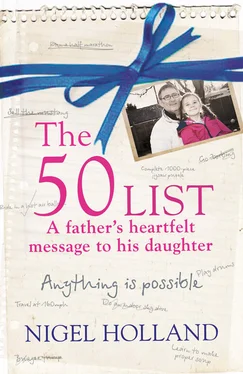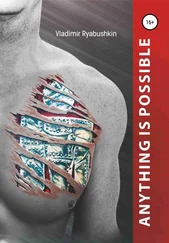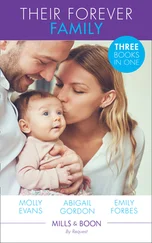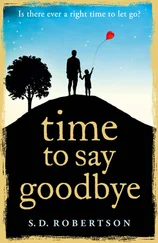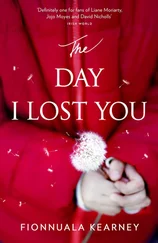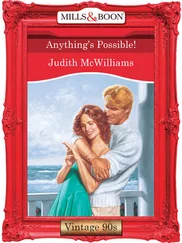Ergo, number of challenges so far completed: Still 0.
However, number of challenges attempted today (finally): 1 – ‘Donate blood.’
But number of challenges actually completed today: Another big fat 0. Oh, and I also got wet.
Well, that was a great start, I don’t think. You might have noticed that, despite a flurry of early enthusiasm and activity, there is nothing recorded here for January. Which is because nothing actually happened in January. Yup, that’s correct. Nothing whatsoever. Yes, we ate, slept and did all the day-to-day things that needed doing, but in terms of My Big Important Project, not a thing.
I know I shouldn’t beat myself up too much. The bottom line is that wheelchairs and snow do not mix – unless you count regularly landing on your own bottom line among your list of favourite pastimes. And it’s not as if I haven’t been getting things under way, making phone calls, sending emails and doing research.
But I’m frustrated because apart from signing up for the half marathon (which does not mean actually doing it, of course, however many training laps I put in before Christmas), becoming a blood donor was to have been pretty much my first completed challenge, and the one I was most keen to get over with.
Except I haven’t got it over with. Which is infuriating, as the day began so positively. Well, I say positively, but there wasn’t really anything positive about it. Just naked fear. Because actually I was terrified.
‘So why are you doing it, then, Dad?’ Ellie wanted to know. It was a reasonable enough question. Though I was pretty sure that by now she understood the concept of the list and why I was doing it, I wasn’t so sure she’d embraced the idea that it might include doing things I didn’t want to do.
We were all finishing breakfast, before the kids left for school. Though I say ‘we’, I couldn’t eat a thing, because I was off to become a blood donor in less than an hour, the thought of which had completely robbed me of my appetite.
‘Because I’m confronting my fears,’ I said, probably rather grandly, in an attempt, as much as anything, to psyche myself up for it. ‘That’s what you do,’ I went on. ‘That’s what makes it a challenge. That it’s difficult is really the whole point. If it was easy for me, it wouldn’t be challenging, would it? If it was Mum doing it, say,’ (Lisa’s a long-term blood donor) ‘it would be easy. But because I have a phobia –’
Ellie looked confused now. ‘What’s a phobia?’
‘An irrational fear,’ Matt supplied. ‘Like when you’re really scared of snakes or spiders –’
‘There is nothing irrational about being scared of snakes and spiders,’ Amy chipped in. ‘Not if they’re cobras or rattlesnakes or black widows or something …’
‘And yours is needles?’ Ellie asked. ‘Needles being poked in your arm?’ She demonstrated on herself for me. ‘And then sucking all your blood out …’ she added, warming to the idea now. ‘A bit like they’re vampires ?’
Which wasn’t the best image to be starting the day with, frankly. Twilight has an awful lot to answer for.
‘Not like vampires,’ said Lisa, presumably seeing I was turning green now. ‘Nothing at all like vampires, in fact. No, it’s done by nurses, and they’re very, very gentle. Dad will hardly feel a thing, because they’re also very good at it …’
But still a lot like vampires, even so.
* * *
It’s not surprising that I have a phobia of needles. From the age of five, and throughout my childhood, they were coming at me from all angles.
My first foray into a world that would become painfully familiar happened just a few weeks after my visit to the GP, when a letter arrived requesting my presence at an appointment that had been made for me at Guy’s Hospital in London.
Being so small still, I didn’t have much idea what was happening. Though I’m sure Mum and Dad told me, I have no memory of making a connection between my bendy toes and the trip to the big city. Going to London was, and would continue to be, synonymous with only one thing for me: a trip to go and visit my Auntie Betty.
My aunt and uncle lived in a sprawling housing estate just off Abbey Road, and I’d go and stay with them at least once every summer. I loved going to visit Auntie Betty and Uncle Gerry. Together they ran a successful stock car racing team, which made them terribly exciting to be with. They would travel all around the country, to race their car in the national championships, and we’d set off to whichever venue we were headed for in an enormous coach that they’d converted from the standard passenger variety into something that, in its day, would not have seemed out of place in a Formula 1 paddock. It carried the stock car on the back and the inside had been adapted so that we could not only sit in it but also sleep in it.
Trips to Auntie Betty’s were the genesis of what would become a lifelong passion for motorsport, and from a very early age, one of the highlights of travelling to London was the point when we’d go through a long tunnel on the A4, and I got that tingle of anticipation, knowing we’d soon be there.
This was different, though. And the big difference that sticks in my mind was that rather than end up at Auntie Betty’s, as usual, we arrived at a scary place, full of incredibly high buildings. In reality not so enormous – hardly the Manhattan skyline – but to little me, they seemed so tall that they blocked out the sun. There was noise, too – so much noise. So many car engines, and bus engines – so many horns blaring all at once, as if all the traffic on the roads was really angry.
And barking. I clearly recall the noise of dogs barking. Strange, looking back – we were nowhere near Battersea – but that’s always stuck in my mind.
I also have a vivid mental picture of the inside of the hospital. And an equally clear one of the great men I was about to meet. I had been summoned to see two eminent physicians of the day: a brace of consultants called the McArdle brothers, who were leaders in the field of neuroscience.
My main impression, not surprisingly for those days, was of brown. Unlike the clinically white environments you find in most modern hospitals, the office of the McArdle brothers was a symphony of dark wood: heavy wooden filing cabinets – the contents of each drawer identified with its own white, handwritten label; dark-wood chairs – one for each of them, plus a further three ordinary, dark, school chairs for me, Mum and Dad; and a hefty dark-wood desk with an inlaid leather top. Looking back, the only thing missing from the tableau was a couple of those globe-shaped glass bottles full of brightly coloured water whose function was, and still is, a mystery.
Also in keeping with the fashion of the time, the McArdle brothers – looking rather frightening in their matching white coats – puffed merrily on cigarettes before mounting their attack. I had come to be investigated and they went at it with gusto, putting me through a series of increasingly scary tests. I was prodded and poked, inspected and injected, and at the end of it, the brothers reached their professional conclusion. Mum and Dad had been right: there was definitely something wrong with me. I had some sort of hereditary muscle-wasting condition, apparently, and to be sure they would need to do some tests.
Everything changed for my parents that day. And, looking back, I’m not surprised; it must have come as such a shock. Though the condition was apparently hereditary, there was no history of it in either family, meaning that it must be the result of some random mutant gene.
We returned home, and while I carried on doing all the things little boys did, largely oblivious to my ‘condition’, they could only look on as my muscles became progressively weaker and – having no experience or medical knowledge of what was wrong with me – worry about what the future might hold for me.
Читать дальше
